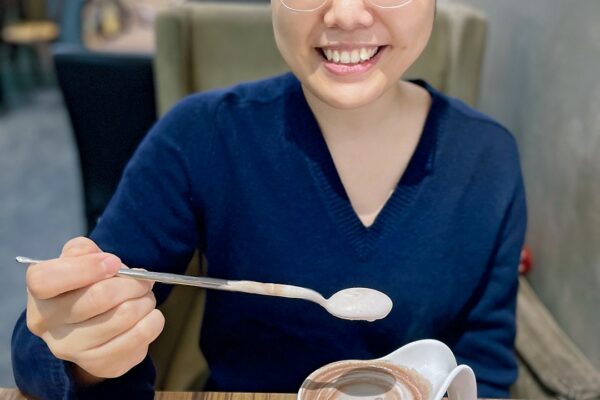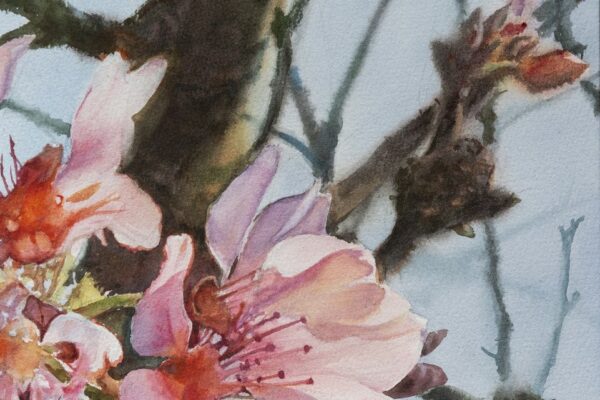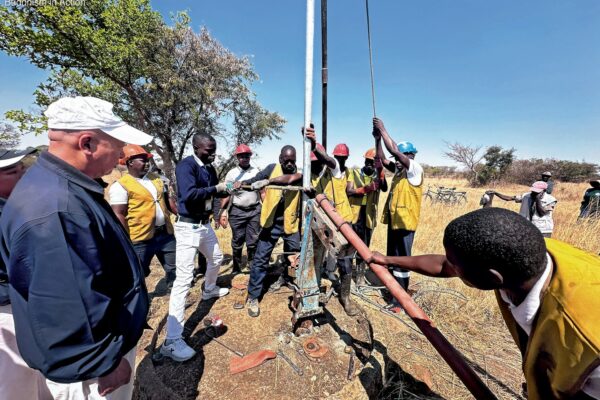Text provided by Tzu Chi Vietnam
Compiled and translated by Wu Hsiao-ting
Photos by Wen Tian-liang
Vietnam has experienced success in fighting COVID-19, but its economy was severely impacted in the process. Here’s how Tzu Chi Vietnam helped disabled and visually impaired persons through the lean times.
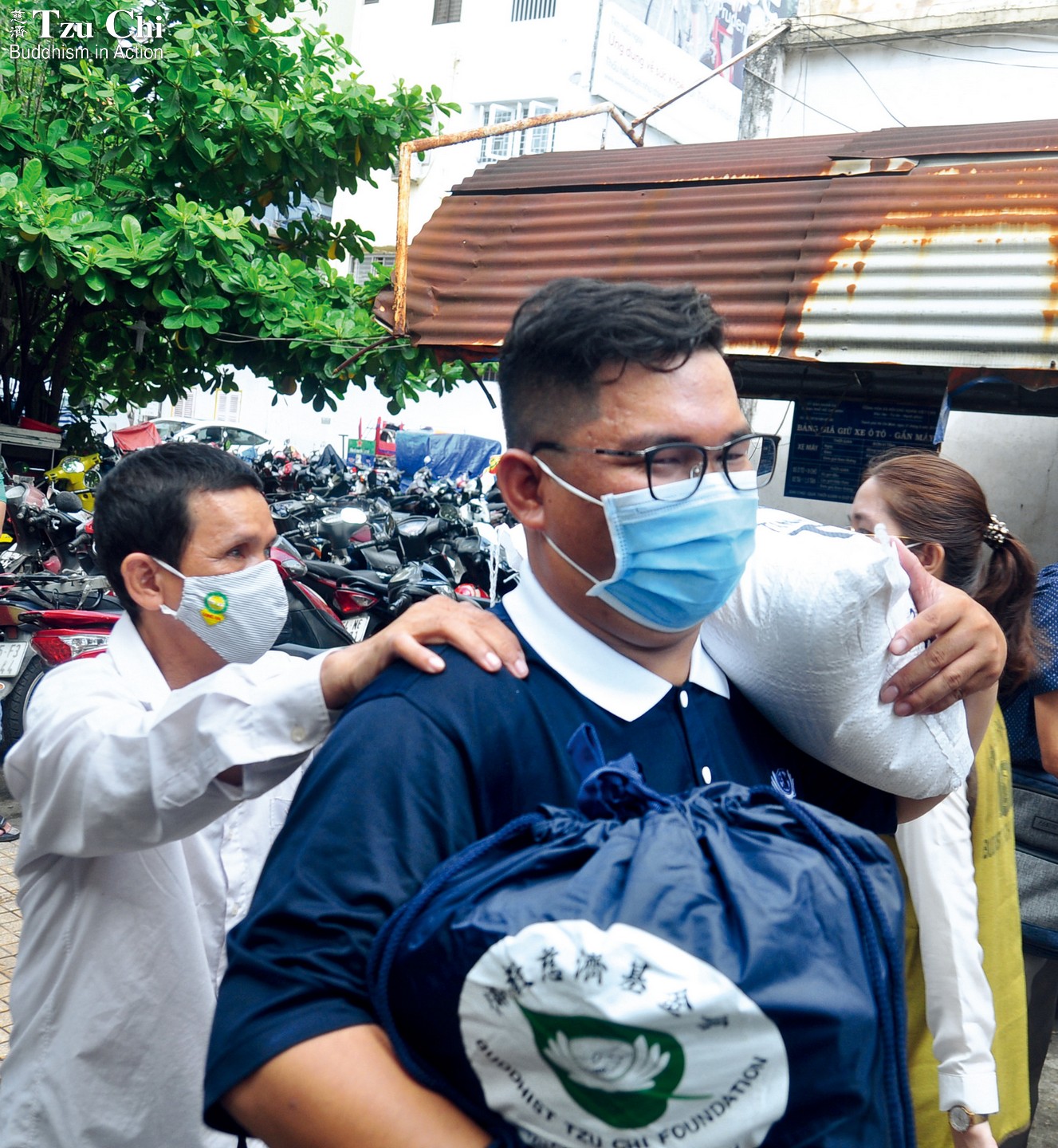
A volunteer carries relief supplies to the place where a visually impaired person will catch a ride home. COVID-19 has impacted the livelihoods of many underserved people, including the disabled. From May 27 to June 2, Tzu Chi Vietnam provided aid to 2,000 people with disabilities to help them out.
Vietnam has been lauded for its effective response to the coronavirus, along with other Asian countries such as Taiwan and South Korea. Despite its noteworthy performance in containing the virus, its economy, like those of most countries around the world, has not been spared from the impacts of the pandemic.
Tzu Chi Vietnam received a letter from the Ho Chi Minh City Union of Friendship Organizations (HUFO) on May 5. In the letter, the union appealed to non-governmental organizations in the city to provide financial aid and medical supplies to underprivileged people and medical teams to help them weather the pandemic. Tzu Chi responded to the appeal by promising to provide 2,000 packages of daily necessities for the needy. Each 18-kilogram (40-pound) package would include a variety of food items, ten cloth masks, and one million dong (US$43) in cash.
HUFO decided the aid packages should be distributed to people with physical disabilities or visual impairments. Such people generally support themselves by making handicrafts, selling lottery tickets, providing massage services, and singing. The precautionary measures enforced by the government to curb the transmission of the virus—including the temporary suspension of all lottery-related activities—caused their livelihoods to suffer badly. They needed a helping hand to pull them through the hard times.
After discussions with HUFO personnel, Tzu Chi volunteers decided to hold distributions at ten venues in Ho Chi Minh City, from May 27 to June 2.
Volunteer Wu Zhi-qi (吳智琦), 73, helped pack the items to be given out and took part in most of the distributions. She is getting on in years, but hasn’t let her age slow her down. When other volunteers asked her if she was tired, she admitted that her feet ached, but she didn’t let it bother her. She said she was no longer young and didn’t have much time left, and so she wanted to seize every opportunity to give of herself.
One of the distributions was held at a vocational training center in Hóc Môn, a suburban district of Ho Chi Minh City. The center provides free vocational training for orphans and people with disabilities. Training includes painting, clay art, goldsmithing and silversmithing, and tailoring. Student work is marketed through Facebook and displayed for sale at the center’s small showroom or at supermarkets.
The pandemic has greatly dampened sales, making it difficult for the students, most of whom are from destitute families, to sustain their livelihoods. The aid from Tzu Chi thus came at a time when it was most needed. Students were grateful, saying that it would help carry them and their families through this difficult time.
An encounter with an unsighted 19-year-old girl at a distribution held in District 1 of Ho Chi Minh City left a deep impression on volunteer He Xin-yan (何心燕). After receiving her aid at the distribution, the girl used a mobile app to call a taxi to take her home. In the midst of it, she turned to He and asked her, “Could you tell me what color my shirt is?” This simple question tugged at He’s heartstrings. Knowing the color of one’s clothes is something sighted people take for granted, but it is not so for the blind. The volunteer realized at that moment that we don’t need much to be happy—we just need to learn to count our blessings.
Peng Hui-fen (彭慧芬), another volunteer, shared that she heard an older, visually impaired man behind her at a distribution in District 10 exclaim: “I’m so happy! I’m overjoyed to receive this gift!” Though Peng didn’t get the chance to talk to the man, the joy she witnessed deeply touched her and made her feel her work was very meaningful, something that made a difference in others’ lives.
Volunteers appreciated the opportunity to do something for the underserved during the pandemic. The distributions helped a thousand visually impaired people and a thousand physically disabled people. At a difficult time like the pandemic, people’s love and care for each other is good medicine that can help heal the world.
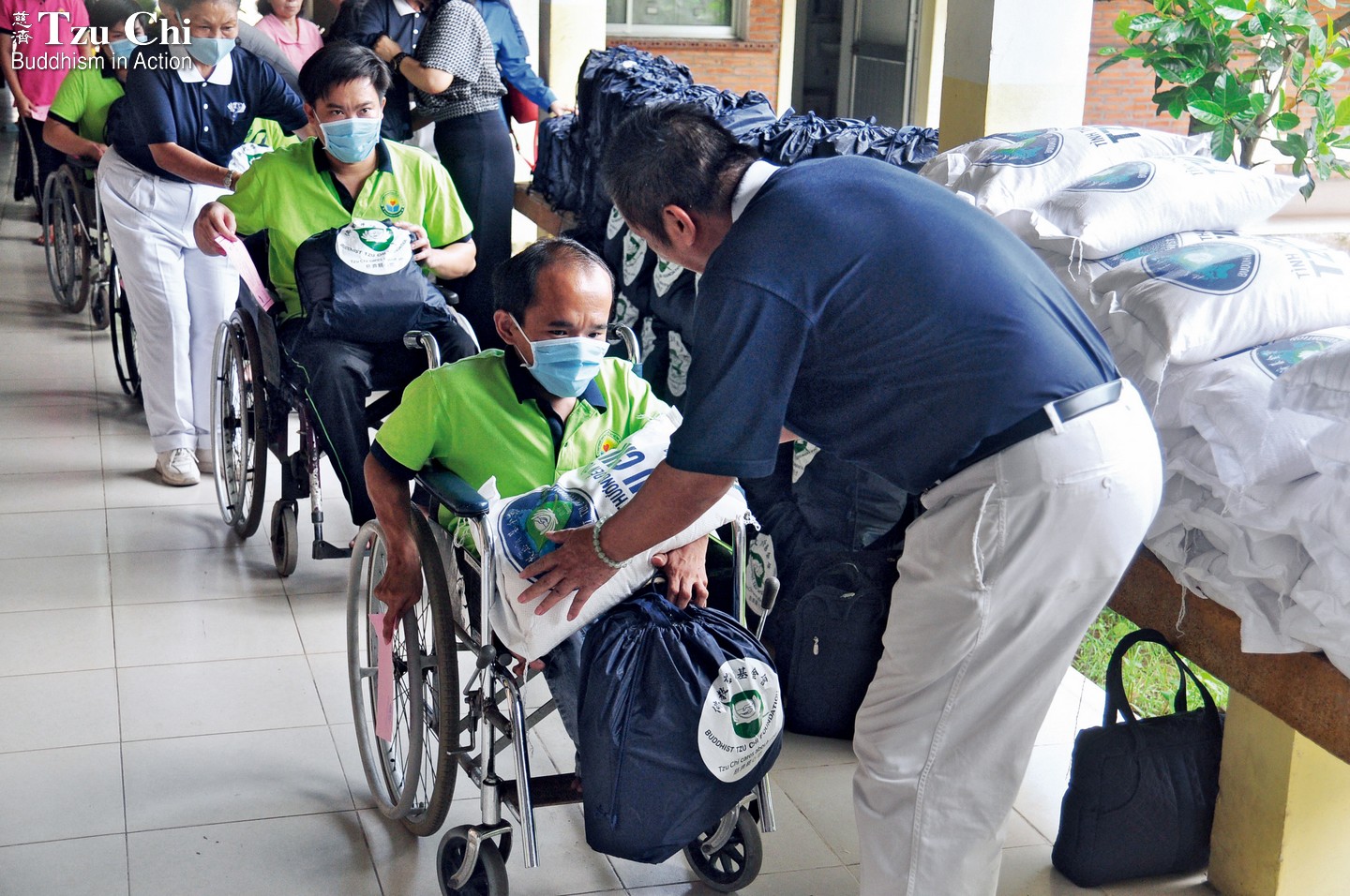
A distribution was held at a vocational training center for orphans and people with disabilities in Hóc Môn.

